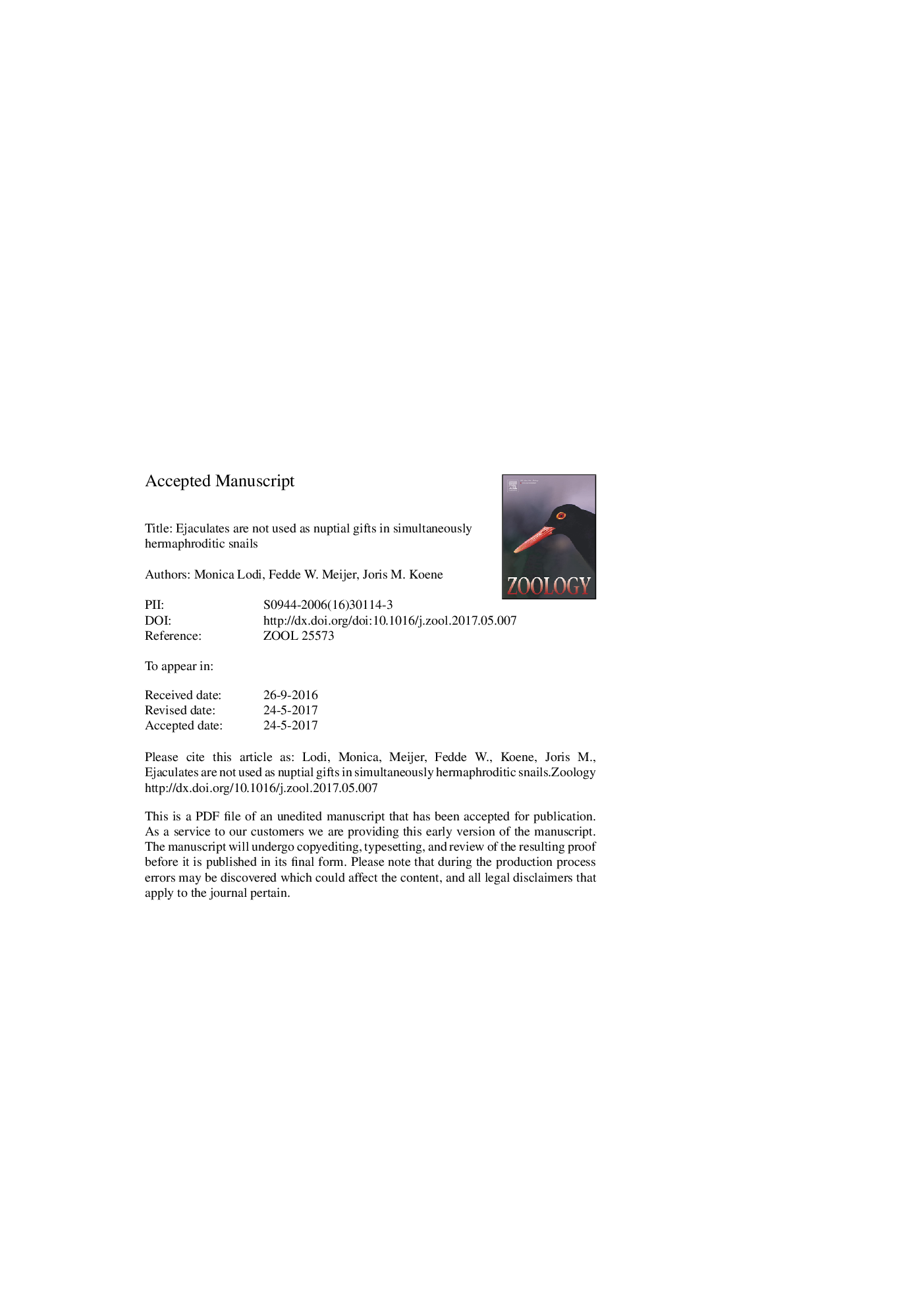ترجمه فارسی عنوان مقاله
انسداد ها به عنوان هدیه به عنوان هدیه بافی در حلزون های هرمافردیتیک به طور همزمان استفاده نمی شود
عنوان انگلیسی
Ejaculates are not used as nuptial gifts in simultaneously hermaphroditic snails
| کد مقاله | سال انتشار | تعداد صفحات مقاله انگلیسی |
|---|---|---|
| 130377 | 2017 | 25 صفحه PDF |
منبع

Publisher : Elsevier - Science Direct (الزویر - ساینس دایرکت)
Journal : Zoology, Volume 123, August 2017, Pages 30-36
ترجمه کلمات کلیدی
ماهی قزل آلا، سرمایه گذاری تولید مثل، رقابت اسپرم، هضم اسپرم، انتخاب جنسی،
کلمات کلیدی انگلیسی
Molluscs; Reproductive investment; Sperm competition; Sperm digestion; Sexual selection;

